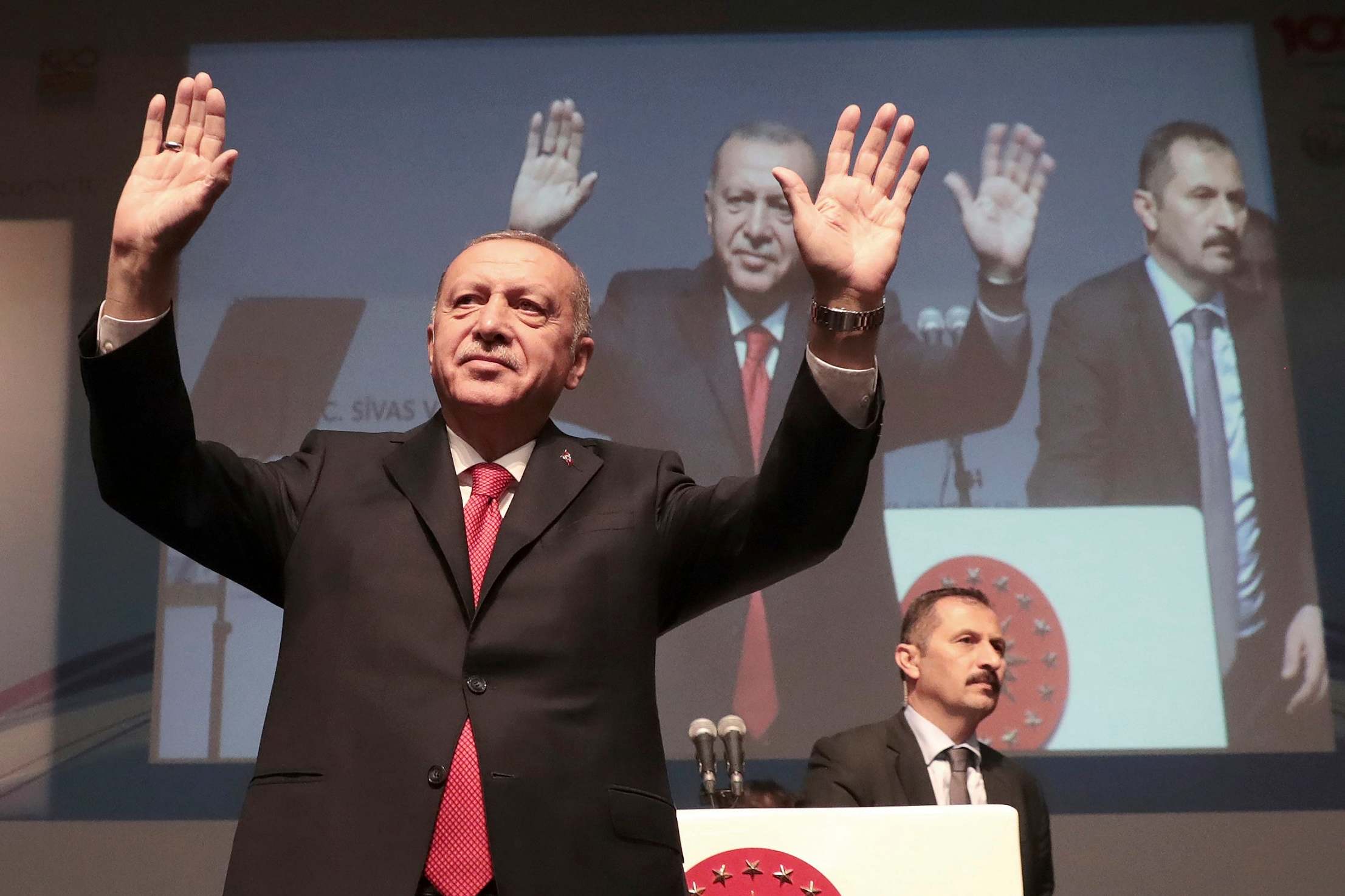Turkey’s Erdogan hints he wants nuclear weapons
The president said it was ‘unacceptable’ that his nation was not allowed to have the missiles

Turkey’s president has shown interest in obtaining nuclear weapons, adding to worries about the proliferation of atomic technology in the Middle East.
In a speech to business leaders late on Wednesday, Recep Tayyip Erdogan questioned global arms-control agreements, saying it was “unacceptable” that his nation was not allowed to have nuclear missiles.
“Some countries have missiles with nuclear warheads. Not just one or two. But I cannot have them. I don’t accept this,” Mr Erdogan said in a speech in central Turkey that was broadcast on national television. “There is almost no developed country in the world that does not have nuclear warheads.”
It remained unclear whether Mr Erdogan was engaging in rhetorical bluster to rally his increasingly nationalistic supporters or hinting at plans. Mr Erdogan’s comments were reported extensively by pro-government media outlets.
“We are carrying out work for nuclear missiles,” declared the pro-government Sabah newspaper.
Turkey was an early signatory to the 1968 Non-Proliferation Treaty (NPT), the international agreement through which countries forego nuclear weapons in exchange for access to peaceful civilian nuclear technology.
Unlike a number of countries, Turkey also ratified the treaty, strengthening its hold over Turkish law.
But Turkey finds itself in a region increasingly exploring nuclear technology.
Neighbouring Iran has been accused of pursuing a nuclear weapons programme and has established a nuclear power plant in the southern city of Bushehr.
Pakistan and India both have nuclear weapons.
The United Arab Emirates, Saudi Arabia, Egypt and Jordan are also pursuing nuclear power.
If it pursues nuclear weapons, Turkey could find itself on the wrong side of both Russia and the US
In the Middle East, only Israel is believed to have an undeclared arsenal – of up to 200 nuclear missiles.
“Don’t we have Israel close by?” said Mr Erdogan. “It uses [nuclear weapons] as a threat.”
Non-proliferation experts say it would be difficult and expensive for Turkey to pursue nuclear weapons, requiring it to breach its treaty commitments, potentially triggering sanctions from its crucial European trading partners at a time when the country is suffering through major economic troubles.
“I’m not sure how he could possibly believe this would improve Turkey’s economy,” said Chen Kane, director of the Middle East non-proliferation programme at the Middlebury Institute for International Studies.
“They’d have to pull out of the NPT and suffer sanctions and potential economic costs.”
In a sign of the Nato member’s deepening relations with Russia, Moscow is building a nuclear power plant in Turkey’s southeast.
Turkey has already irked the US with its recent purchase of the Russian S-400 air-defence system, which spurred the US to remove it from a programme to deploy advanced F-35 fighter jets.
But pursuing a nuclear weapons programme could also enrage Moscow, a nuclear power which agreed to sanctions on Iran when it was suspected of violating its NPT obligations.
“If it pursues nuclear weapons, Turkey could find itself on the wrong side of both Russia and the US,” said Ms Kane.
The Turkish president has also threatened to reopen the route for refugees into Europe unless a safe zone in Syria is set up with the help of the international community.
“Our goal is for at least one million of our Syrian brothers to return to the safe zone we will form along our 450km border,” Mr Erdogan said in a speech in Ankara on Thursday.
“We are saying we should form such a safe zone that we, as Turkey, can build towns here in lieu of the tent cities here. Let’s carry them to the safe zones there,
“Give us logistical support and we can go build housing 30km (20 miles) deep in northern Syria. Either you will provide support, or excuse us, but we are not going to carry this weight alone.”
Join our commenting forum
Join thought-provoking conversations, follow other Independent readers and see their replies
Comments
Bookmark popover
Removed from bookmarks